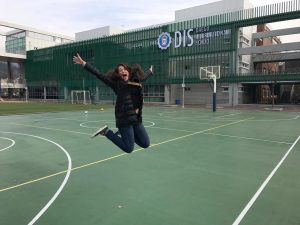The Special Education department at UMF is proud to welcome some new, bright, exciting members to the professional team. Kate MacLeod, Dominique Tetzlaff, and Kevin Good are the newest professors in special education at UMF.
Kate MacLeod is joining the the special education faculty in the Secondary and Special Education Division here at UMF. She is completing her doctorate in Special Education at Syracuse University and holds a Certificate of Advanced Study in Disability Studies from Syracuse and a Masters of Science in Special Education from Long Island University. Kate was a high school special education teacher and inclusion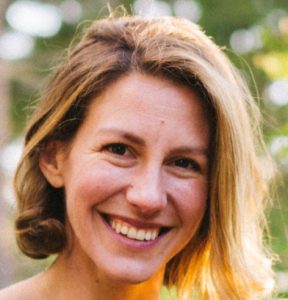 facilitator in New York City, and has expertise working with urban adolescents with disabilities. Her research and writing has been published in academic journals such as Educational Leadership, Disability & Society, Education and Training in Autism and Developmental Disabilities, and International Journal of Whole Schooling, educational magazines such as Rethinking Schools and TASH Connections, and book anthologies focused on inclusive and special education. Her current research agenda is focused on best practices for the inclusion of students with complex support needs; understanding the culture of inclusive schools; and the development of teacher networks to support inclusive education. Kate is also an educational consultant who works with administrators, teachers, and families in the northeast and across the country to support their work to create and improve inclusive practice and culture for all students. She is a new resident of Unity, Maine and when she is not teaching, researching, or working with schools and families, she loves to play music with her husband and friends, and spend time outside with her dog Amelia. Kate is absolutely thrilled to join the UMF community!
facilitator in New York City, and has expertise working with urban adolescents with disabilities. Her research and writing has been published in academic journals such as Educational Leadership, Disability & Society, Education and Training in Autism and Developmental Disabilities, and International Journal of Whole Schooling, educational magazines such as Rethinking Schools and TASH Connections, and book anthologies focused on inclusive and special education. Her current research agenda is focused on best practices for the inclusion of students with complex support needs; understanding the culture of inclusive schools; and the development of teacher networks to support inclusive education. Kate is also an educational consultant who works with administrators, teachers, and families in the northeast and across the country to support their work to create and improve inclusive practice and culture for all students. She is a new resident of Unity, Maine and when she is not teaching, researching, or working with schools and families, she loves to play music with her husband and friends, and spend time outside with her dog Amelia. Kate is absolutely thrilled to join the UMF community!
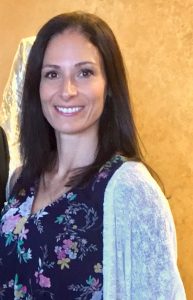 Dominique Tetzlaff has been in the field of education for almost ten years. She started her career as a special education teacher in a middle school serving at-risk students in a high poverty community. Dominique recently completed her doctorate in Special Education at the University of Nevada, Las Vegas, and she specializes in high incidence disabilities, using technology for students with disabilities, and methods for teaching English Language Learners. Her dissertation study Using Mobile Technology to Increase the Math Achievement and Engagement of Students with Disabilities focused on the critical design features and implementation of mobile devices to support teacher-directed instruction. Dominique hopes to further expand this research line to develop guidelines for using digital lessons in the core content areas for students with disabilities. Dominique is very excited to be part of the UMF faculty and is looking forward to enjoying the community with her family!
Dominique Tetzlaff has been in the field of education for almost ten years. She started her career as a special education teacher in a middle school serving at-risk students in a high poverty community. Dominique recently completed her doctorate in Special Education at the University of Nevada, Las Vegas, and she specializes in high incidence disabilities, using technology for students with disabilities, and methods for teaching English Language Learners. Her dissertation study Using Mobile Technology to Increase the Math Achievement and Engagement of Students with Disabilities focused on the critical design features and implementation of mobile devices to support teacher-directed instruction. Dominique hopes to further expand this research line to develop guidelines for using digital lessons in the core content areas for students with disabilities. Dominique is very excited to be part of the UMF faculty and is looking forward to enjoying the community with her family!
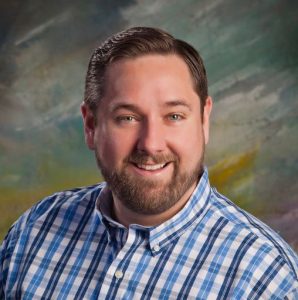
Kevin Good is an instructor in Special Education. He holds two master’s degrees and is preparing to finish his Ph.D. His focus in special education has resulted in various experiences including teaching, research, advocacy, and assistive technology consulting. Kevin is interested in all areas of special education, but his primary teaching and research is on assistive technology, inclusive education, teacher education, literacy, academic and behavioral instructional approaches, and best practices in instruction and technology use. His primary goal is to develop and mentor future teachers as they prepare to meet the needs of all learners. He is also excited to work with community members with their assistive technology needs be it related to pk-12 education, higher education, or life. As the Maine CITE coordinator at UMF, Kevin seeks to help all individuals at UMF learn more about the roles of assistive technology in the classroom and in life. Kevin is excited to be joining the UMF community because of its longstanding reputation in teacher education and its location in one of the most beautiful places in the country!
UMF is very excited to welcome Kate, Dominique, and Kevin to our faculty. If you see them around campus be sure to say hello and welcome them to Farmington. From all of here at UMF, we want to give a warm welcome to our new professors in Special Education!
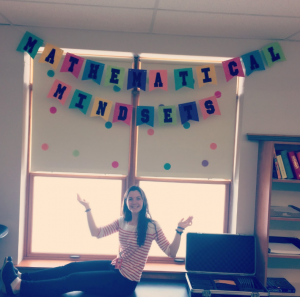
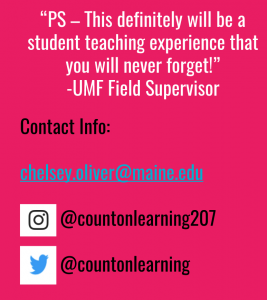
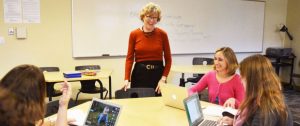
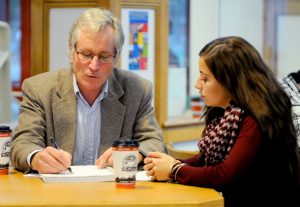

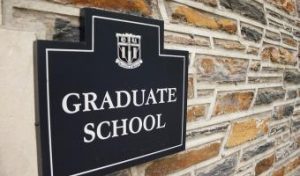







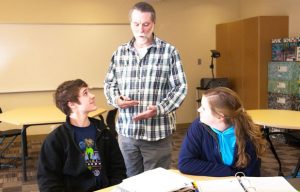






 The University of Maine at Farmington currently has four teacher candidates conducting their student teaching at the Daegu International School in Daegu, South Korea. The Daegu International School (DIS) has a partnership with UMF that allows students to conduct their student teaching internationally while meeting all of the requirements to receive their degree. Tori Lands and Kayla Girardin were able to share their experience and discuss various challenges, opportunities, and stores from their experience.
The University of Maine at Farmington currently has four teacher candidates conducting their student teaching at the Daegu International School in Daegu, South Korea. The Daegu International School (DIS) has a partnership with UMF that allows students to conduct their student teaching internationally while meeting all of the requirements to receive their degree. Tori Lands and Kayla Girardin were able to share their experience and discuss various challenges, opportunities, and stores from their experience.
 e most interesting. Maine is not as diverse as DIS, as Tori has students in her classroom from Korea, America, China, the Philippines, Japan, Australia- just to name a few. The diversity in her classroom has allowed her to learn from her students as well. “Instead of just reading about different cultures and countries these students can share personal stories and experiences,” Tori said. “It has been challenging to make sure I am sharing content in a way that makes sense to all the different learners in my classroom and making U.S. history relevant to students who may have only been to the states once or twice is interesting.” Both Tori and Kayla believe the cultural experience that students gain when teaching abroad has been much richer than teaching at home in the states.
e most interesting. Maine is not as diverse as DIS, as Tori has students in her classroom from Korea, America, China, the Philippines, Japan, Australia- just to name a few. The diversity in her classroom has allowed her to learn from her students as well. “Instead of just reading about different cultures and countries these students can share personal stories and experiences,” Tori said. “It has been challenging to make sure I am sharing content in a way that makes sense to all the different learners in my classroom and making U.S. history relevant to students who may have only been to the states once or twice is interesting.” Both Tori and Kayla believe the cultural experience that students gain when teaching abroad has been much richer than teaching at home in the states.